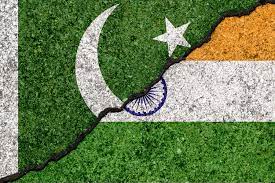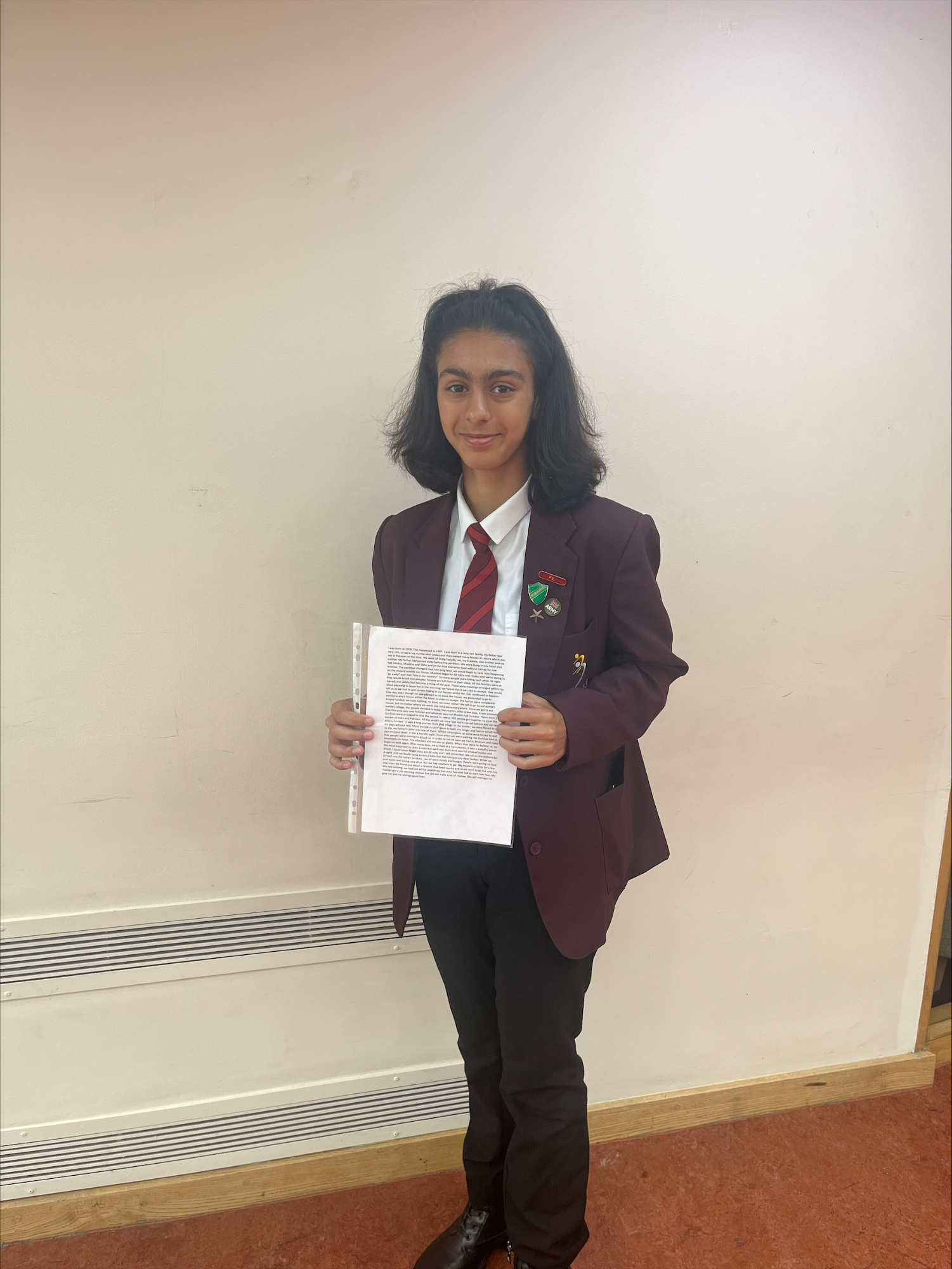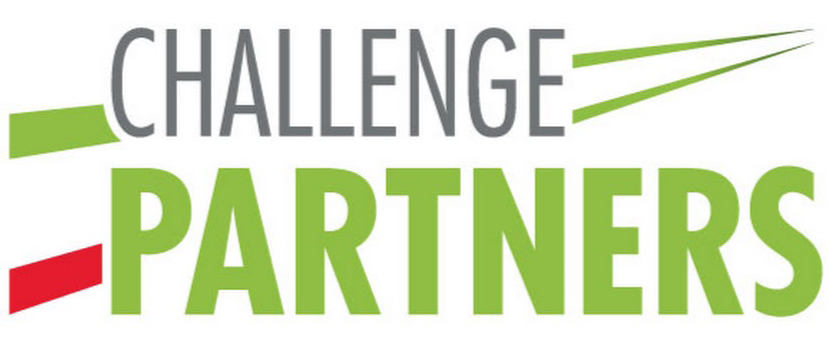History
.jpeg)
Partition from a very personal perspective
 Students in Year 9 have been learning about the Partition of British India in History recently and the creation of two states, India, and Pakistan. In their lessons, they were exposed to how historians have researched and found out about the impact that Partition had. In one lesson, students saw how government records from the time helped historians established what happened and where. In another lesson, students looked at the photojournalism of Margaret Bourke-White whose powerful images captured the human suffering during the months after the decision to partition Indian. Finally, students listened to powerful oral interviews recording to understand how Partition still affects people today. In one lesson, Mr Khan read to the students the story of his great aunt, who remembered and recounted her experiences.
Students in Year 9 have been learning about the Partition of British India in History recently and the creation of two states, India, and Pakistan. In their lessons, they were exposed to how historians have researched and found out about the impact that Partition had. In one lesson, students saw how government records from the time helped historians established what happened and where. In another lesson, students looked at the photojournalism of Margaret Bourke-White whose powerful images captured the human suffering during the months after the decision to partition Indian. Finally, students listened to powerful oral interviews recording to understand how Partition still affects people today. In one lesson, Mr Khan read to the students the story of his great aunt, who remembered and recounted her experiences.
Inspired by this, Anika in year 9 explored some of her own history! Anika interviewed her grandmother who also experienced Partition.
Here is her story:
'I was born in 1938. This happened in 1947. I was born in very rich family, my father was very rich, so were my aunties and uncles and they owned many houses in Lahore which was not in Pakistan at the time. We were all living happily, me, my 6 sisters, one brother and my mother. My father had passed away before the partition. We were living in one block that had Hindus, Muslims, and Sikhs and at the time everyone lived without hatred for one another. The partition changed that. Not long later, we would begin to hear riots happening on the streets outside our house. Muslims began to kill Sikhs and Hindus and we are saying to "go away" and that "this is our country". So many people were killing each other. At night they would break into peoples' houses and kill them in their sleep. All the families were so scared, and safety had become a think of the past. There were meetings arranged within the block planning to leave but in the morning, we heard that if we tried to escape, they would kill us, so we had to just remain hiding in our houses whilst the riots continued to happen.
One day, even though no one allowed us to leave the house, we pretended to go to someone else's house within the block to escape. We had to leave completely empty handed, we took nothing, no food, not even water! We left to go to our auntie's house, but no matter where we went, the riots were everywhere. Once we got to our auntie's village, the people decided to leave the country. After a few days, it was announced that this area was now Pakistan and whoever was not Muslim had to leave. There were two Gurkhas were arranged to take the people to safety. 500 people got together to cross the border of India and Pakistan. All the wealth we once had had to be left behind and we came empty handed. It was a long journey from that village to the border; we were forced to walk for days without rest. Many people could not bear to walk any longer and had to be left there to die, my father's sister was one of them. Whilst others gave up some were forced to and just dropped dead. It was a horrific sight. Once when we were walking the Gurkhas told us that people were coming to attack us. To not be seen we had to lie down and make absolutely no noise. The attackers did not see us, gladly. When they were far behind us, we began to walk again. After many days, we arrived at a train station, it was a dreadful scene.
We were supposed to catch a train but each one that came was full of dead bodies and blood. I could never forget this, I am 84 now, and I still remember. We sat on the stations for a night until we finally came across a train that did not have any dead bodies. When we arrived at the Indian territory, we all were thirsty and hungry. People were giving us food and water and taking care of us. But we had nowhere to go. We stayed in a camp for a few days then we found out about a relative that lived nearby and so we went to go live with her. We had nothing, we had lost all the wealth we had once had and had to start new lives. My mother got a job stitching clothed but did not make a lot of money. She still managed to give me and my siblings good lives.’
Here is what Anika said about the experience:
‘We have been learning about Partition recently in History and I wanted a different perspective to enhance my understanding, so I thought the best way to do this was to get a point of view from my family. I then called my grandmother up and interviewed her on the phone and recorded it. Some of the interview was in Hindi some in English so I had to translate it. In doing this I found out about how tragic and horrific some peoples experiences of Partition were. It also helped understand the kind of work historians do when they gather their research. I hope people see this and speak to their own family members, where they are from the same part of the world or not. This is because although the story was very sad; my grandmother was so happy that I took an interest in ther past and her experiences. I urge you all to do the same!’
Mr Khan also said:
‘It is wonderful to see our students so engaged with their history lessons. We have only introduced the teaching of Partition this year, it is amazing to see the impact it is already having. The story of Partition is close to my heart, as it is part of my story. Looking around this school, it is also the story of many other students and staff at Barnhill. One of my passions is to get students to also do history and this is an excellent example. I was immensely proud when Anika came up to me showing me what she had done. It goes to show how important history is and how important it is to talk to the elder generations in our families to understand their experiences. Well done, Anika, I could not be prouder.







